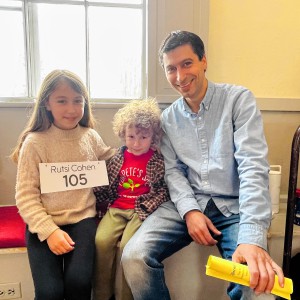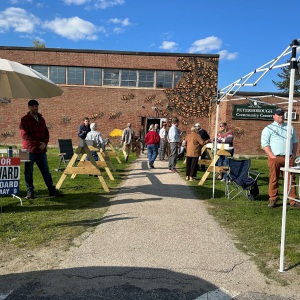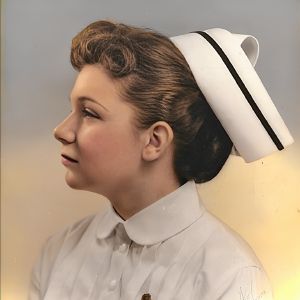Viewpoint: L. Phillips Runyon III – Days that are etched in memory
| Published: 11-14-2023 1:39 PM |
There are some events in our collective lives that are so momentous for our national identity that they're etched in our hard drives, and we recall their dates every year. Some are ones we've experienced ourselves, and for those we remember exactly where we were when we heard the news. One of each of those is coming up for me.
The first happened 160 years ago this month in Gettysburg, Pa., where Abraham Lincoln gave a "few brief remarks" at the dedication of the cemetery honoring the thousands of Union soldiers who had recently died there during the three-day battle of the same name. We sometimes overlook that he wasn't the main speaker, but that's because after the famed orator Edward Everett spoke for more than two hours, Lincoln said just 272 words in about two minutes that are perhaps the greatest ever uttered in public - by anyone.
At first, though, people were shocked - even offended - by the brevity of what he said. "How could he disrespect all those he was supposed to honor!" Soon, however, like a tidal wave that builds and finally engulfs everything in its path, the nation came to realize that this was no insult; what it had heard was something truly remarkable in those 272 practically perfect words. I remember having to memorize and recite them in grade school, and most of them have stayed with me ever since. I mean, is there really anyone, even 160 years later, who can't identify the source of "Four score and seven years ago"? Try asking your chronically bored, history-averse teenagers or grandchildren and see what they say. I sincerely hope I'm not wrong.
The other November event is one I lived through - and perhaps you, too - now 60 years past but still so clearly imprinted on me that it could have happened yesterday.
I was a junior in high school that Friday and was walking out of Mister Lenci's English class when the guys coming in said the president had been shot. None of us paid much attention at that point - rumors fly around schools like bats in a barn, but this one didn't fly away. Even when we heard very soon that the president was dead, it still seemed impossible - but everyone quickly ran for a radio. Once Walter Cronkite said it, though, there was no further doubt. That's because Cronkite was likely the most-respected American in those different days, which I know seems hard for us to believe now, as truth and our news sources have parted company on so many occasions since then.
Our teachers soldiered on through the end of that day, but no one heard a word they said. I had a long bus ride home and it was usually a madhouse of stupid adolescent behavior. That day, everyone sat looking blankly out the windows, like they'd been drugged. Over the weekend, many shops were closed and nearly everyone sat in front of their black-and-white sets and watched numbly as the event continued to confound us.
On Sunday, my family went to church, a rare occurrence for us that underscored how deeply people mourned for the widow and her young children. When we returned home and turned the set back on, we watched Jack Ruby kill Lee Harvey Oswald on live television.
The holidays seemed like an afterthought that year. Finally, the stupor was broken late in December by a song on the radio called "I Want to Hold Your Hand" and we were thankful for the distraction.
Article continues after...
Yesterday's Most Read Articles
 Spellers strut their stuff at inaugural Greenfield Spelling Bee
Spellers strut their stuff at inaugural Greenfield Spelling Bee
 Meet the candidates in this year’s Peterborough town election
Meet the candidates in this year’s Peterborough town election
 Mary Lawler remembered for a life of service
Mary Lawler remembered for a life of service
 ConVal track and field makes its one home meet count
ConVal track and field makes its one home meet count
 PHOTOS: The Farm at Wolf Pine Hollow holds TulipFête 2024
PHOTOS: The Farm at Wolf Pine Hollow holds TulipFête 2024
Kennedy's death was the first national tragedy since World War II and the first one I lived through. Unlike today, the country seemed totally unprepared for anything like that, as though everything we relied on had suddenly come unhinged. Unfortunately, we've had too many other such occasions since then, and I'm sorry to say we've grown almost complacent. Complacency isn't a good foundation for launching remedial action and we've now proved that over and over - hundreds of times even this year.
Still, if Kennedy had lived, there might not have been the national resolve for passage of the Civil Rights Act and Voting Rights Act that President Lyndon B. Johnson was able to push through in Kennedy's memory. So much more might have taken a different course, too, these past 60 years. Vietnam, Watergate, even 9/11?
As a nation, I hope we never stop reminding ourselves about both of those Novembers. They still have lessons for us.
L. Phillips Runyon III practices law in Peterborough and was the presiding justice of the 8th Circuit Court.


